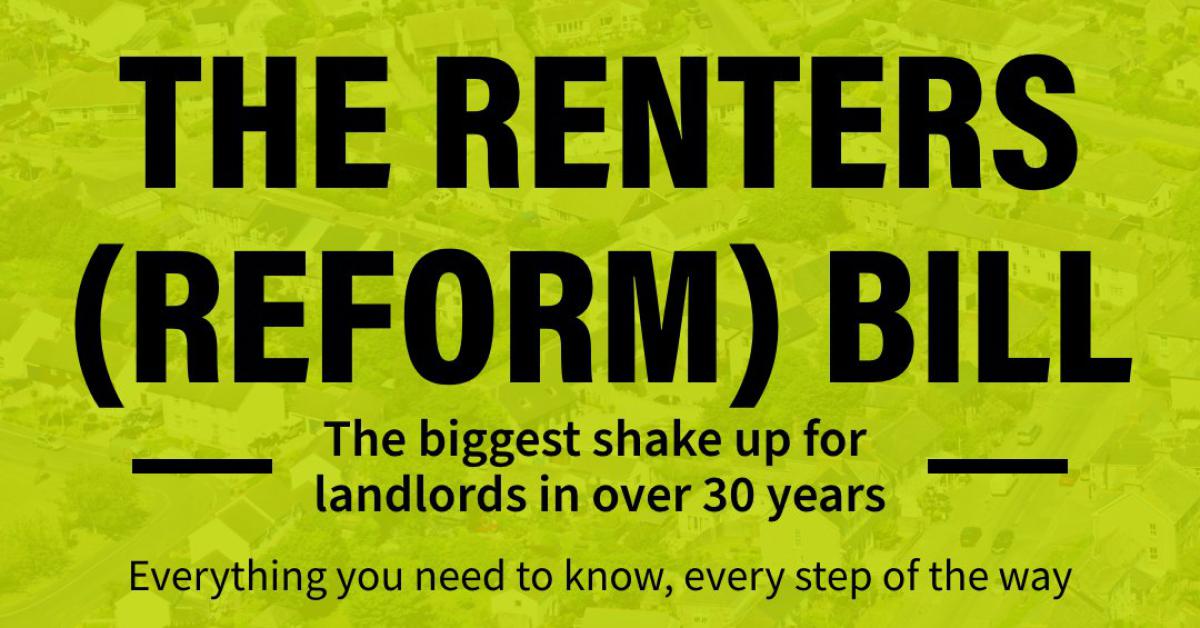

New amendments proposed to the Renter’s Reform Bill
The Renters Reform Bill has now reached committee stage. As well as hearing evidence from experts, during this period the Bill may see significant changes as amendments are put forward to be debated in parliament.
A very large number of these have already been published, with 146 pages of amendments put forward so far. Most are from the Government, as it adds in new sections around Decent Homes, discriminatory advertising practices and the promised possession ground for student landlords.
As the Government’s amendments are extremely likely to pass, landlords should assume that the following amendments will be included in the final version of the Bill.
Student ground for possession
To give student landlords some confidence they can offer properties each academic year, the Government has introduced a new ground (4A) which will allow most student landlords to regain possession in line with the academic year.
The ground is a mandatory ground meaning that the courts will have to give possession if the landlord has:
• Given at least two months’ notice;
• Required possession between 1 June and 30 September; and
• Let an HMO exclusively to people who were students (or people the landlord would reasonably believe would become students) at the start of the tenancy.
Of note, the ground only applies to HMO properties, meaning that two-person student house shares may become a thing of the past.
It will also not apply to part-time students or students who live with a non-student.
Council tax
In a positive move for landlords, the Bill amends the council tax rules so that tenants remain responsible for paying the council tax until their notice expires, even if they leave the property earlier.
Under the current rules, if a tenancy begins life as a periodic tenancy, the landlord becomes liable for the council tax as soon as the tenant vacates a property, even if they have not served notice.
Decent Homes Standard and enforcement powers
As expected, the Government introduced a power to set a new Decent Homes Standard applicable to the private rented sector.
The details of this new standard are yet to be published but will include (among other things) –
• the state of repair of the premises,
• items provided for use by the occupants, and
• heating options in the property.
The Bill will also grant local authorities new powers to require information from landlords, individuals and deposit schemes in relation to breaches of the Decent Homes Standard, and other regulations.
Discrimination against families and people in receipt of benefits
As expected, amendments have been tabled that would prohibit discrimination against tenants with children, or in receipt of benefits.
The legislation will make it an offence to discriminate by preventing a prospective tenant from –
(i) enquiring whether the dwelling is available for let,
(ii) accessing information about the dwelling,
(iii) viewing the dwelling in order to consider whether to seek to rent it, or
(iv) entering into a tenancy of the dwelling, or
(v) engaging in practices or setting criteria that would deter these sort of claimants from applying.
In practice, it’s not clear how effective this is likely to be in helping people find homes, particularly while there are still an average of 25 applicants per property.
It is likely that tenants on lower incomes will continue to find it difficult to find accommodation until the government provides tax incentives that increase the supply of available housing, addresses structural issues with Universal Credit, and unfreezes the LHA rate so that it better reflects market rents.
Rent repayment orders
Earlier this year, the Supreme Court ruled that a superior landlord could not be held liable for a rent repayment order under a rent to rent arrangement.
The NRLA intervened in this case and welcomed the outcome. We wanted to ensure that landlords were protected in cases where they had unwittingly let to a rent to rent scheme. However, many raised concerns that this would prevent access to justice for tenants if the rent to rent company dissolved.
The Government has now put forward an amendment that would mean superior landlords can be held liable for the behaviour of a rent to rent company. The amendment also extends rent repayment orders to up to two years.
Penalties for misusing the sale ground
A number of commentators have raised concerns that some grounds could be misused by unscrupulous landlords who serve the notice with no real intention to move a family member in, sell or redevelop the property.
To prevent that, the Government has introduced a new amendment that would make it an offence to use grounds 1, 1A or 6 without a genuine reason. It also makes it an offence to require possession earlier than six months after the tenancy has begun. Where the offence is committed and the landlord does not have a defence, the landlord can be fined up to £5000.
What are the opposition amendments proposing?
Opposition MPs have also tabled a number of amendments to the Bill. These amendments are less likely to be included within the bill so we will not deal with them fully.
However, they include things like:
• Increasing the length of a notice and the time before a notice can be served;
• Making some mandatory grounds discretionary;
• Increasing the evidence requirements for certain grounds;
• Introducing rent caps on in-tenancy rent rises;
• Substantially increasing the penalties for non-compliance.
What is missing from the amendments?
In the NRLA’s view, a number of further amendments to secure landlord confidence. These include:
• Commitments around court reform;
• Providing a minimum security of tenure for landlords and tenants;
• Protecting landlords where they become unwitting victims of unlawful subletting.
We are currently working to see some proposed amendments added to the Bill to try and secure this. We will continue to update on the progress of these and other amendments as the committee stage progresses.

